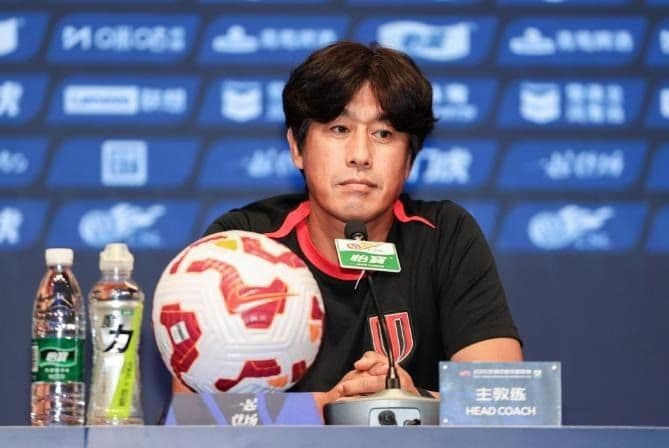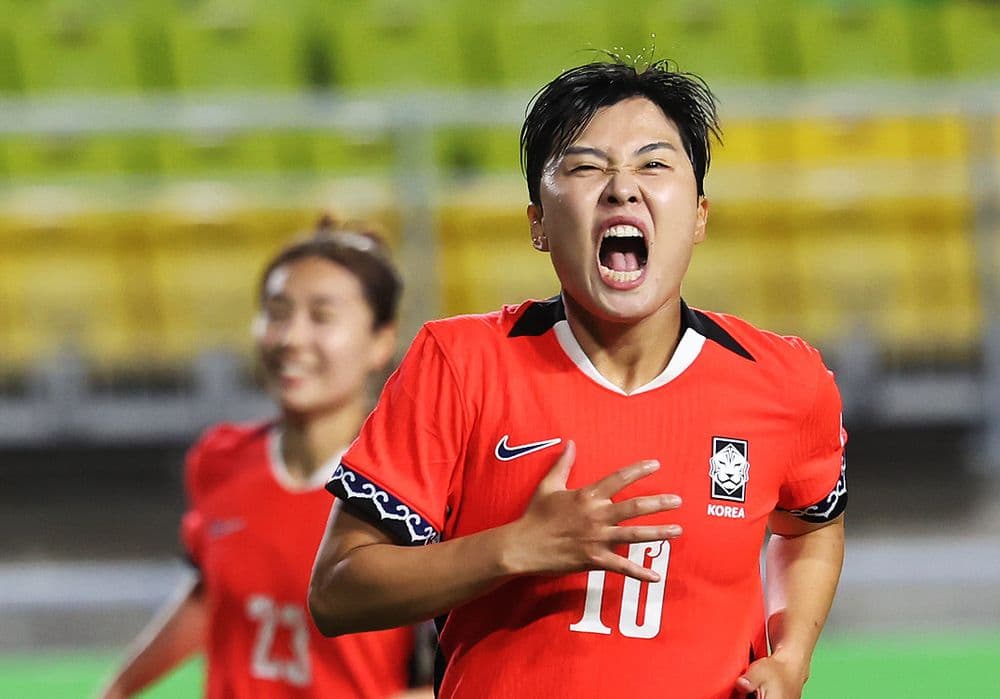The Shocking Truth Behind Seo Jung-won's $11M Salary Drama: Is China's Media Going Too Far?

The Unprecedented Attack on a Legendary Coach
Did you know that one of Korea's most successful football exports is being torn apart by Chinese media despite achieving the impossible? Seo Jung-won, the mastermind behind Chengdu Rongcheng's miraculous rise, has become the target of vicious criticism from Chinese journalists who claim his coaching staff's 40 million yuan (approximately $7.7 billion won) salary is 'sucking the club's blood dry.'
The controversy exploded when Chinese media outlet NetEase published a scathing report on July 17th, with journalist Feng Jin posting on social media that Seo's coaching staff salary of 27 million yuan before taxes represents 'an extremely high level in East Asia.' What makes this attack even more shocking is the timing - it comes just as Chengdu sits in 3rd place in the Chinese Super League, only 4 points behind league leaders Beijing Guoan, and fresh off their historic first-ever AFC Champions League Elite qualification.
The media frenzy has reached such intensity that one Chinese journalist brazenly declared Seo as 'currently the highest-paid person in the Chinese Super League,' adding fuel to an already explosive situation that has Korean football fans utterly bewildered by the ingratitude being shown to their coaching legend.
From Second Division Heroes to Champions League Dreamers

To understand just how absurd these salary criticisms are, you need to know Seo Jung-won's incredible journey with Chengdu Rongcheng. When the Korean legend arrived in December 2020, Chengdu was languishing in China's second division with little hope of advancement. Fast forward to today, and this is the same club that achieved something unprecedented in their entire history.
Seo's first miracle came in 2021 when he guided Chengdu to promotion to the Chinese Super League - a feat that seemed impossible when he first arrived. But that was just the beginning. In their debut top-flight season in 2022, Chengdu shocked everyone by finishing 5th, a remarkable achievement for a newly-promoted side. The success continued in 2023 with a 4th place finish, but 2024 was when Seo truly made history.
By securing 3rd place in the 2024 Chinese Super League season, Seo Jung-won delivered something Chengdu fans had only dreamed of - their first-ever qualification for the AFC Champions League Elite (ACLE). This wasn't just a sporting achievement; it represented a complete transformation of a club's identity and ambitions. Now, as they prepare for their Champions League debut against Bangkok United on August 12, 2025, Chinese media chooses to attack the very architect of this success.
The Explosive Press Conference That Changed Everything
The situation reached a boiling point when Seo Jung-won finally broke his silence in what can only be described as one of the most dramatic press conferences in Chinese football history. On July 17th, just one day before Chengdu's match against Tianjin Jinmen Tiger, Seo delivered a blistering critique of his own club's management.
'I have endured the club for six months. As a coach, I can no longer tolerate this. I cannot just be an observer anymore,' Seo declared, his frustration palpable. He revealed shocking details about how the club had operated behind his back: 'Since winter, the club has not trusted our coaching staff. Later, they fired the medical team and the interpreter. All coach contracts were only finalized in March.'
Perhaps most damaging to the club's reputation was Seo's revelation about transfer decisions: 'The club has not contacted me at all regarding player transfers or loans. I do not know either. As a coach, I cannot accept this situation.' This admission exposed a complete breakdown in communication between one of Asia's most successful coaches and the very club he had transformed from second division strugglers to Champions League participants.
When Players Break Down: The Wei Shihao Incident
The toxic atmosphere surrounding Chengdu reached its lowest point during their match against Tianjin Jinmen Tiger on July 18th, when striker Wei Shihao - one of China's national team stars - was reduced to tears by abusive fans. The incident perfectly encapsulated how the controversy was affecting everyone connected to the club.
According to Chinese media reports, Tianjin fans targeted Wei Shihao with vile insults about his family from the moment he began warming up. 'Tianjin fans began provoking Wei Shao with insults about his mother as soon as he warmed up. They also insulted other Chengdu players and demeaned Wei Shao's wife whenever he touched the ball,' reported NetEase and Sohu.
The situation escalated when Wei Shihao, after scoring a late consolation goal, received a yellow card for a rough foul and was sent off. As more abuse rained down from the stands, the normally composed striker broke down completely, with coach Seo Jung-won having to comfort his devastated player. The Chinese Football Association was forced to take action, implementing a one-match spectator ban and officially criticizing the behavior, but the damage to team morale was already done.
The Cultural Clash: Understanding Chinese Football's Expectations
For international fans trying to understand this controversy, it's crucial to recognize the unique pressures and expectations within Chinese football culture. The criticism of Seo Jung-won's salary isn't happening in a vacuum - it reflects deeper tensions about foreign coaches, financial sustainability, and the broader struggles of Chinese football to compete globally.
Chinese football has invested billions in recent years, often with disappointing results. When a Korean coach commands what Chinese media describes as 'the highest salary in the CSL,' it triggers sensitive discussions about value for money and national pride. The fact that Seo's salary reportedly exceeds that of his mentor Choi Kang-hee and combines the salaries of two Shanghai coaches adds ammunition to critics who question whether any coach is worth such investment.
However, what these critics conveniently ignore is the measurable return on investment. Seo Jung-won hasn't just improved results - he's fundamentally transformed Chengdu's trajectory from a second-tier club to Champions League participants. For international observers, this represents exactly the kind of success story that should be celebrated, not criticized. The fact that Chinese media chooses to focus on salary figures rather than unprecedented achievements reveals more about their priorities than Seo's worth.
Fan Reactions: A Divided Community Speaks Out
The controversy has split Chinese football fans right down the middle, creating passionate debates across social media platforms and football forums. Supporters of Seo Jung-won have been particularly vocal in defending their coach's achievements and questioning the media's motives.
'Seo Jung-won did not forcefully demand 40 million yuan with a sword. It was Chengdu that willingly signed the contract, so why discuss moral hazard? It's truly shameful!' wrote one Chinese fan, perfectly capturing the hypocrisy of attacking a coach for a contract his own club offered. Another supporter added: 'Since the contract was signed, the club must pay. They must compensate even if sued by FIFA.'
However, the criticism has also found support among some fans who question whether any coach deserves such a massive salary in Chinese football's current financial climate. The divide reflects broader tensions within Chinese football about spending priorities, foreign influence, and realistic expectations for success. What's particularly telling is how fans have rallied around Seo personally, even when questioning the salary structure - a sign that his achievements have earned genuine respect despite the media controversy.
Meanwhile, Seo's wife Yoon Hyo-jin added another emotional dimension to the story through her social media posts, asking: 'Do you not have even the slightest conscience as a person? Is it to cut off his hands and feet and silence him?' Her intervention highlighted how the controversy was affecting not just professional relationships but personal lives as well.
The Bigger Picture: What This Means for Korean Coaches in China
This salary controversy represents more than just one coach's dispute with his club - it could have lasting implications for Korean football professionals working in China and the broader relationship between the two footballing nations. The intense media scrutiny and public criticism directed at Seo Jung-won sends a clear message about the pressures facing foreign coaches in Chinese football.
Currently, Chengdu Rongcheng sits 3rd in the Chinese Super League with 34 points from 16 matches (10 wins, 4 draws, 2 losses), just 4 points behind league leaders Beijing Guoan. Their upcoming Champions League campaign against Bangkok United on August 12th represents the culmination of Seo's project - the first time in club history they'll compete at Asia's highest level.
Yet instead of celebration, we see character assassination. Instead of recognition for transforming a second-division club into Champions League participants, we hear complaints about 'blood-sucking' and excessive salaries. For Korean football fans watching from afar, this treatment of one of their coaching legends represents not just ingratitude, but a fundamental misunderstanding of what success actually costs in modern football. The real question isn't whether Seo Jung-won deserves his salary - it's whether Chinese football deserves coaches of his caliber if this is how they're treated when they deliver the impossible.
Discover More

Ha-Seong Kim's Remarkable Recovery: From Surgery to Rays Comeback in 2025
Tampa Bay Rays infielder Ha-Seong Kim has made a successful return from shoulder surgery, showing his defensive versatility and speed despite early season struggles.

From 20-Year Veteran Ji So-yeon to '07-Born Casey: Korea Women's Soccer Triumphs in Historic East Asian Cup Victory
Korea's women's soccer team achieved a stunning 20-year breakthrough, winning the 2025 EAFF E-1 Championship through generational change under coach Shin Sang-woo, setting high expectations for the upcoming 2026 Asian Cup.